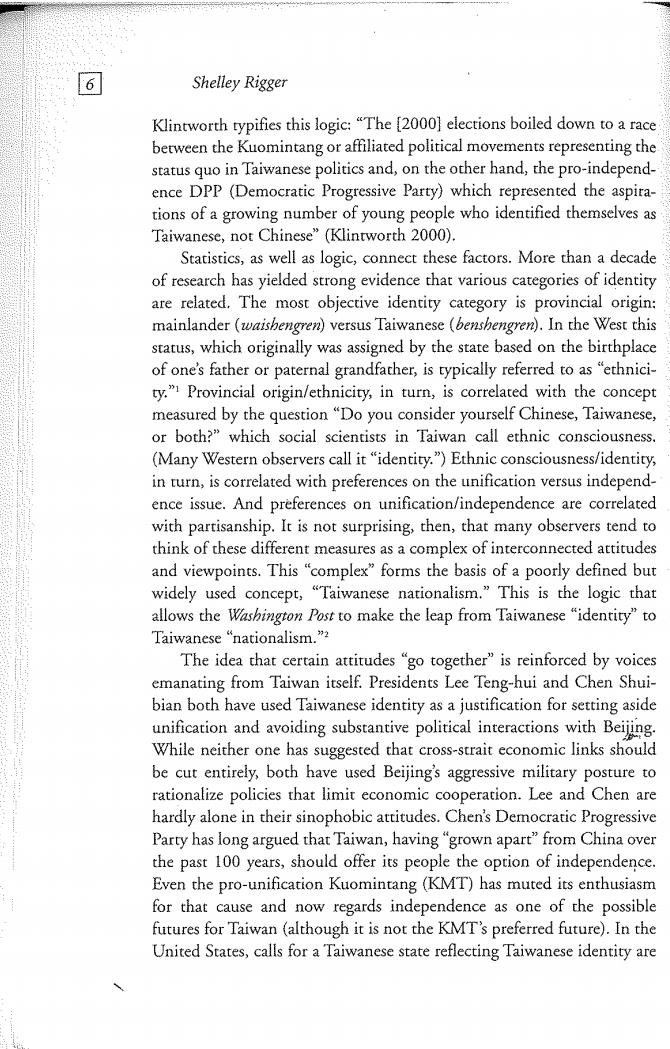正在加载图片...

6 Shelley Rigger Klintworth typifies this logic:"The [2000]elections boiled down to a race between the Kuomintang or affiliated political movements representing the status quo in Taiwanese politics and,on the other hand,the pro-independ- ence DPP (Democratic Progressive Party)which represented the aspira- tions of a growing number of young people who identified themselves as Taiwanese,not Chinese"(Klintworth 2000). Statistics,as well as logic,connect these factors.More than a decade of research has yielded strong evidence that various categories of identity are related.The most objective identity category is provincial origin: mainlander (waishengren)versus Taiwanese(benshengren).In the West this status,which originally was assigned by the state based on the birthplace of one's father or paternal grandfather,is typically referred to as"ethnici- ty.Provincial origin/ethnicity,in turn,is correlated with the concept measured by the question "Do you consider yourself Chinese,Taiwanese, or both?"which social scientists in Taiwan call ethnic consciousness. (Many Western observers call it"identity.")Ethnic consciousness/identity, in turn,is correlated with preferences on the unification versus independ- ence issue.And preferences on unification/independence are correlated with partisanship.It is not surprising,then,that many observers tend to think of these different measures as a complex of interconnected attitudes and viewpoints.This"complex"forms the basis of a poorly defined but widely used concept,"Taiwanese nationalism."This is the logic that allows the Washington Post to make the leap from Taiwanese "identity"to Taiwanese"nationalism."2 The idea that certain attitudes"go together"is reinforced by voices emanating from Taiwan itself.Presidents Lee Teng-hui and Chen Shui- bian both have used Taiwanese identity as a justification for setting aside unification and avoiding substantive political interactions with Beijing. While neither one has suggested that cross-strait economic links should be cut entirely,both have used Beijing's aggressive military posture to rationalize policies that limit economic cooperation.Lee and Chen are hardly alone in their sinophobic attitudes.Chen's Democratic Progressive Party has long argued that Taiwan,having"grown apart"from China over the past 100 years,should offer its people the option of independence. Even the pro-unification Kuomintang(KMT)has muted its enthusiasm for that cause and now regards independence as one of the possible futures for Taiwan(although it is not the KMT's preferred future).In the United States,calls for a Taiwanese state reflecting Taiwanese identity are